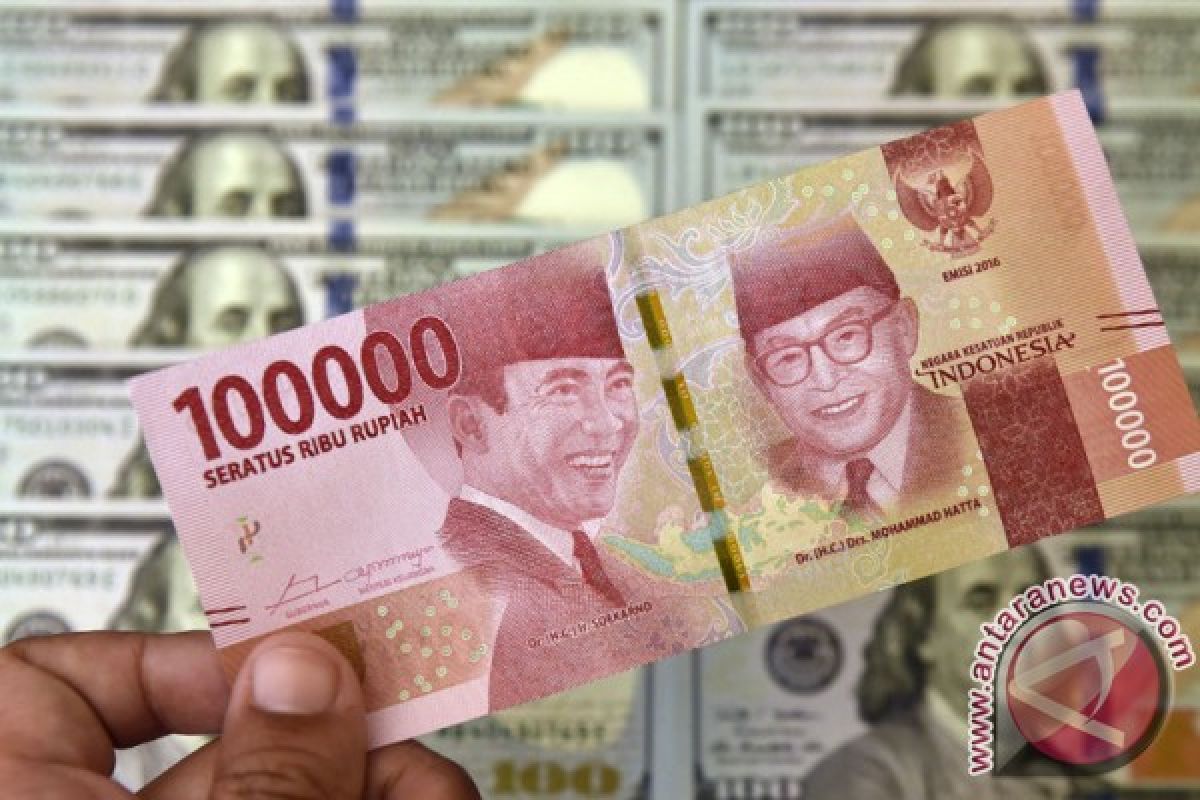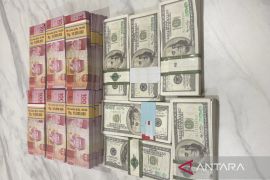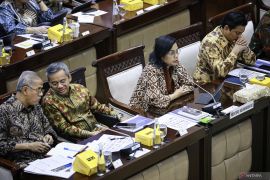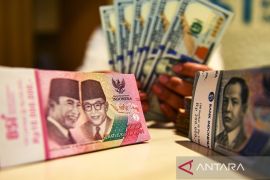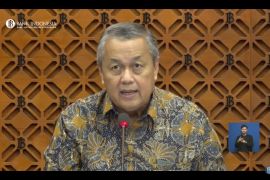The national currency suffered a big blow on Monday when it lost more value hitting the weakest point in many years at 14,600 per U.S. dollar.
Himbara secretary Budi Satria said, from early this year, bankers had predicted the continuation of the global financial uncertainty. Therefore they had taken precaution to mitigate risks by limiting credits in foreign exchange denomination.
In addition, Budi said more debtors have complied with call to protect themselves with hedging system for their foreign exchange debts that the risk of a swelling in the repayment burden could be reduced.
"Banks of Himbara members are conservative in foreign exchange loans. Profile risk of each bank is well managed," Budi said.
Himbara has already made simulation and stress test to see a safe spread of exchange rate to better guarantee good performance of banks, he said.
The rupiah exchange rate of 14,600 per dollar is still within the safe spread, he said without giving limits for the safe spread.
"We can still keep control," he added.
Himbara members are all listed including PT. Bank Mandiri , PT. Bank Rakyat Indonesia, and PT. Bank Negara Indonesia and Bank Tabungan Negara. The first three are ranked among the country`s top lenders.
On Monday, the rupiah closed weaker with value shrinking to the level of 14,643 per dollar from the previous level of 14,486 per dollar at the opening trade.
Bank Indonesia attributed the shrinkage to pressure of investors fears of worse impact of the Turkish economic crisis on the already weak global financial market.
The global financial markets were hit by turbulence on fear of the impact of the shrinking value of the Turkish lira. The Turkish currency, tumbled closing at the level of 7.24 per dollar or weakening more than 40 percent so far this year.
The crisis in the Turkish financial system followed too much intervention by the Turkish government to bring down benchmark interest rate and worsening trade relations with the United States which slapped high import tariffs on Turkish aluminum and steel.
On Monday, the Indonesian Government has also expressed concern with the country`s widening current account deficit, which has reached US$8 billion or three percent of the country`s GDP in the second quarter of the year.
"Yes, it was a bit too big. The government has to take concrete steps to bring the deficit down," Darmin was quoted as saying.
He said it is more difficult to bring down current account deficit than that of trade deficit.
The government, however, would first focus on redressing the country`s international trade to reduce the trade deficit.
Meanwhile, Finance Minister Sri Mulyani said: "We are cautious. My word is cautious."
She said actually the condition with three percent deficit of the current account balance was still better than in 2015 when the deficit was more than 4 percent.
However, the government needs to be cautious as the global economic development is much different from in 2015, Sri Mulyani said.
Fortunately, there was good news domestically with economic growth was stronger than expected in the second quarter of this year, though the investment and manufacturing sectors have yet to be bolstered, she said.
She indicated that in a bid to cut the deficit, the government would seek to boost export and cut imports, instead of reducing expenditure.
"Reducing expenditures is potential to weaken economic growth, but we have to prepare such scenario if the condition is getting more dynamic," she said.
The Minister said currently, the government is seeking to reduce imports by using more good produced domestically such as the use of biodiesel 20 (B20) to reduce import of diesel oil.
"So far, oil fuel has contributed considerably to import spending ," she said.
B20 is a mixture of diesel oil and palm oil that makes up 20 percent of the mix.
The government has said the use of B20 to substitute automotive diesel oil would save up to US$5.5 billion a year.
Reporting by Indra Arief Pribadi
Editing by A Saragih, Rahmad Nasution
Reporter: Antara
Editor: Fardah Assegaf
Copyright © ANTARA 2018
